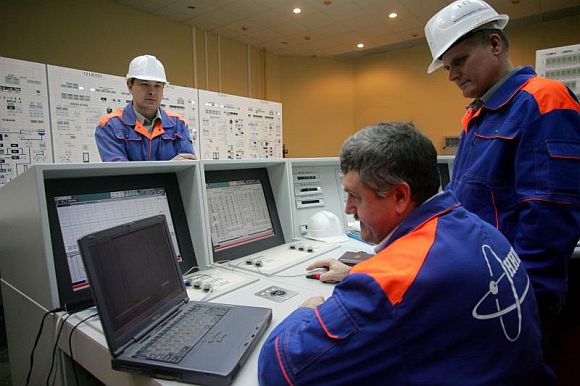"... Russian President Dmitry Medvedev's decision not to sell advanced weaponry to Iran is being hailed as a dividend of the Obama administration's "reset" policy with Russia. And although the administration didn't expressly offer the Kremlin a quid pro quo for the reversal, Moscow will expect moves by Washington in return as it cautiously moves to grasp Obama's outstretched hand.Both the Obama and Bush administrations implored the Kremlin not to follow through with their 2006 signed agreement to sell almost $1 billion worth of S-300 air defense systems to Iran, and on Wednesday, Medvedev formally announced the sale will not go through.Russia's decision, which is seen by Kremlinologists as being driven by Medvedev himself, is being touted by the White House as a new dawn in the U.S.-Russia relationship and a significant move in further isolating the embattled regime in Tehran. A senior administration official, speaking to The Cable on background basis, said Moscow's refusal to sell the S-300 air defense system and various other advanced weaponries was a significant decision, because imposing sanctions on Iran is more costly for Russia than for the United States."They've made that very clear to us for the last two years that this is not a symmetrical transaction for them and they don't share the same threat assessment as us vis-a-vis Iran," the official said. "The decision was a bold one that acknowledges how important it is to us and how important Medvedev takes this reset with President Obama."The officials explained that the Obama administration made clear to Medvedev and other Russian officials that the sale of the S-300 to Iran was a red line that couldn't be crossed, and one that was raised in every high-level meeting between the two countries. Israeli officials did the same in meetings with their Russian counterparts.The issue was raised during Medvedev's visit to Washington in July. Two weeks ago, it was discussed again during a trip to Russia by NSC Senior Director for Russia Michael McFaul and Undersecretary of State Bill Burns. Defense Secretary Robert Gates pressed Russian Defense Minister Anatoly Serdyukov on the issue during his visit to Washington last week (along with still lingering potential Russian missile sales to Syria). And Secretary of State Hillary Clinton met with Russian Foreign Minister Sergei Lavrov on the sidelines of the U.N. General Assembly on the day the announcement was made.As for why the Russians finally decided to scuttle the arms deal after years of lobbying by Washington, the official speculated that Moscow now has something it needs -- and that it finally has faith that the U.S. is willing to help. Russia is jockeying for as much U.S. support as possible for their upcoming bid to join the World Trade Organization (WTO), and Moscow is planning to finalize its bid this year.....What's clear is that the U.S. and Russia are now cooperating on key issues such as Iran more than before and that Obama team made the Iran weapons sales a priority in its dealings with Russia. What pushed Russia over the edge in this case was a mix of their desire for further concessions from the United States and a deteriorating relationship with Iran. Tehran protested the Russian announcement; their top military commander called the decision "illogical" because he said it was not required under U.N. Security Council Resolution 1929.But some Russia skeptics aren't so sure that Moscow has yet made the strategic decision to turn away from Iran and towards the United States.

Bushehr...
"Let's wait a bit before we pop open the champagne," said David Kramer, who served as assistant secretary of state for democracy and human rights during the Bush administration. He gave credit to the Obama administration for getting the Russians to renege on the S-300 sale, but pointed out that Moscow still cooperates with Iran on the Bushehr nuclear reactor, may allow Russian company Lukoil to undermine U.S. energy sanctions, and may even sign on to a multilateral criticism of U.S. and EU sanctions on Iran being discussed by Brazil, India, and China...."
No comments:
Post a Comment